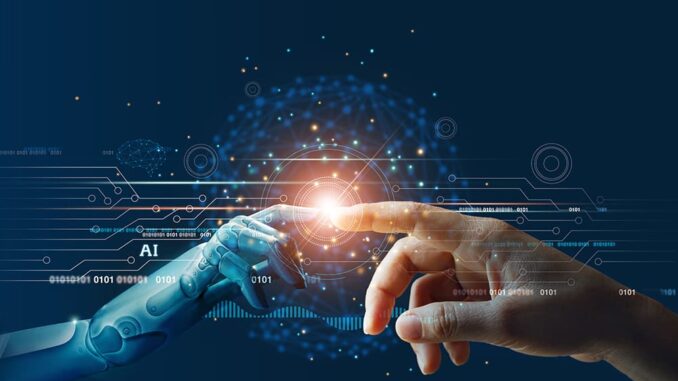
The exponential growth in AI capabilities presents a variety of opportunities and challenges across different sectors and aspects of society. Here’s a breakdown of both:
### Opportunities: 1. **Increased Efficiency**: AI can automate repetitive and time-consuming tasks, allowing businesses and individuals to focus on higher-value activities. This can lead to significant productivity gains across industries.









2. **Enhanced Decision-Making**: AI systems can analyze vast amounts of data quickly and accurately, providing insights that facilitate more informed decision-making in fields such as finance, healthcare, and logistics.
3. **Personalization**: AI technologies enable highly personalized experiences in customer service, marketing, and entertainment, tailoring recommendations and interactions based on individual preferences and behaviors.
4. **Breakthroughs in Research and Development**: AI accelerates the pace of innovation in scientific research, from drug discovery in pharmaceuticals to advancements in materials science, by identifying patterns and simulating outcomes that might not be readily apparent to humans.
5. **Accessibility**: AI has the potential to enhance accessibility for individuals with disabilities, such as through speech recognition, language translation, and assistive technologies that can improve communication and interaction.
6. **Enhanced Public Safety**: AI can aid in disaster response, crime prevention, traffic management, and public health monitoring, leading to safer communities and better resource allocation.
### Challenges:
1. **Ethical Considerations**: The rapid advancement of AI raises ethical concerns regarding privacy, surveillance, bias, and discrimination. There are ongoing debates about how to ensure fairness and equitable treatment in AI systems.
2. **Job Displacement**: Automation powered by AI is likely to displace certain job functions, leading to workforce disruptions. Preparing workers for new roles and retraining initiatives will be crucial for mitigating negative impacts.
3. **Dependence and Reliability**: As society becomes more reliant on AI technologies, issues related to system failures, reliability, and accountability arise. Ensuring that AI systems are robust and trustworthy is paramount.
4. **Security Risks**: The integration of AI into critical infrastructure raises cybersecurity concerns, as malicious actors may exploit vulnerabilities in AI systems to cause harm or manipulate outcomes.
5. **Data Privacy**: The use of AI often involves large amounts of data, raising concerns about how that data is collected, stored, and used, and the potential for breaches of privacy.
6. **Regulation and Governance**: The rapid pace of AI development outstrips existing regulatory frameworks, posing challenges for policymakers in establishing guidelines that balance innovation with safety and ethical considerations.
### Conclusion:
The exponential growth of AI capabilities holds tremendous promise but also requires careful consideration of the ethical, social, and economic implications. Collaborative efforts among governments, industry leaders, researchers, and civil society are essential to harness AI’s potential for good while addressing its associated risks. The goal is to create a future where AI contributes positively to society, enhancing quality of life and fostering innovation, while minimizing adverse effects and ensuring equitable access to benefits.

Leave a Reply